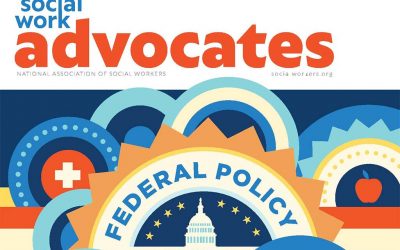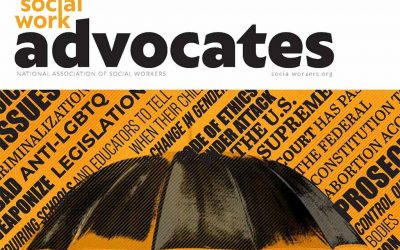Harlem comedy showcase is a safe space for up-and-coming performers who are trying to figure things out. By Faye Beard At Comedy in Harlem, a hip club nestled in the historic Sugar Hill neighborhood, a group of healthcare professionals recently gathered for a Big Dose...
NASW Staff
Social Workers Prescribe a Dose of Laughter
Harlem comedy showcase is a safe space for up-and-coming performers who are trying to figure things out. By Faye Beard At Comedy in Harlem, a hip club nestled in the historic Sugar Hill neighborhood, a group of healthcare professionals recently gathered for a Big Dose...
Read the April – May 2023 Issue of Social Work Advocates
The April/May 2023 issue of the magazine Social Work Advocates is online.
Association between Loneliness, Mental Health Symptoms, and Treatment Use among Emerging Adults
Surgeon General Vivek Murthy has raised the alarm over a loneliness epidemic in the United States, calling it a public health crisis. He declared that loneliness increases the risk of early death to levels comparable to daily smoking.
Macro-Level Social Work Interventions in Schools: Poverty Simulation Programs as Professional Development Opportunities for K–12 Educators
Poverty continues to be a significant public health crisis across the United States, and its impact is particularly prevalent among school-aged youth and their families. Many K–12 educators do not fully understand the realities associated with living in poverty. Such...
“A Liminal Moment in Social Work”: Access NASW’s Social Work Journal Online
NASW members can access the Social Work journal, published by NASW Press, online as a member benefit. The contents for the April 2023 issue include: Editorial: A Liminal Moment in Social Work Liminal moments are times of transition, specifically the time when it is...
Ethical Challenges Amid Changing Political Landscape
The February/March 2023 issue of Social Work Advocates is now online.
Police Contact and Anxiety Among Black Young Adults in St. Louis
Anxiety disorders are among the most prevalent disorders for Black young adults (ages 18 to 29) in the United States. Additionally, some Black young adults who have had encounters, directly or indirectly, with police may experience “police contact anxiety” (PCA)...






